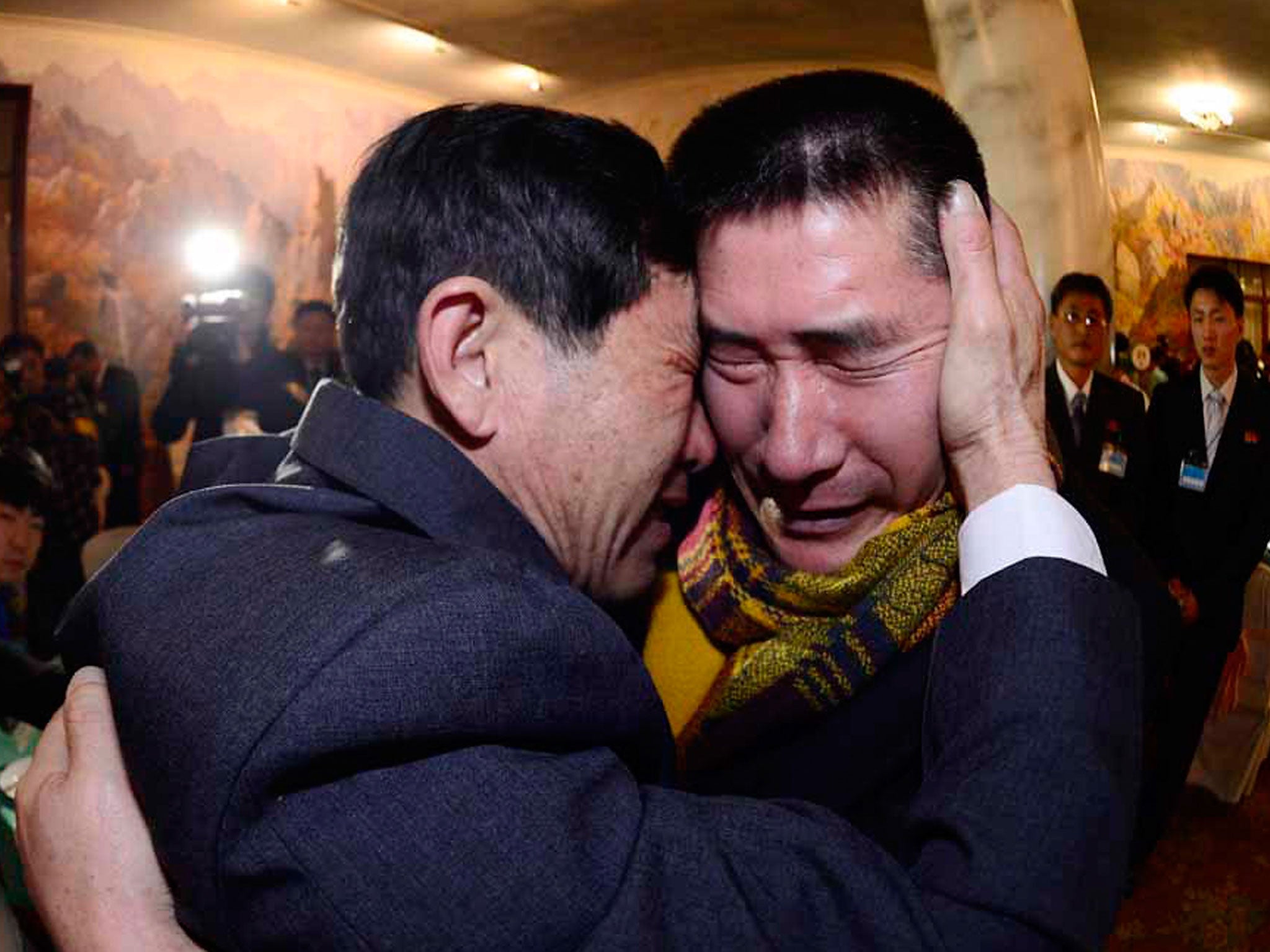Bittersweet reunions for North and South Korean families separated since war
Elderly relatives unlikely to see each other again

Your support helps us to tell the story
From reproductive rights to climate change to Big Tech, The Independent is on the ground when the story is developing. Whether it's investigating the financials of Elon Musk's pro-Trump PAC or producing our latest documentary, 'The A Word', which shines a light on the American women fighting for reproductive rights, we know how important it is to parse out the facts from the messaging.
At such a critical moment in US history, we need reporters on the ground. Your donation allows us to keep sending journalists to speak to both sides of the story.
The Independent is trusted by Americans across the entire political spectrum. And unlike many other quality news outlets, we choose not to lock Americans out of our reporting and analysis with paywalls. We believe quality journalism should be available to everyone, paid for by those who can afford it.
Your support makes all the difference.Koreans families separated for more than 60 years have seen each other for the first and possibly last time at a reunion for North and South Korean relatives.
Hundreds of South Koreans have been allowed to briefly enter North Korea in a rare thaw in relations between the two countries.
The North had threatened to cancel the scheme ahead of South Korean military drills but has permitted reunions until Tuesday.
Many of the travellers were elderly survivors of the bitter civil war and travelled in wheelchairs and even ambulances to see relatives for a final time.
South Korean Park Un-hyeong, 93, left his North Korean daughter after spending three days together on Saturday.
Trying to console her as she wept, he said: “You shouldn't cry on this good day.”
Lee Oh-hwan, 84, had to be treated by a medical team when she became short of breath from crying too hard while leaving her North Korean sister.
Ri Ok Bin, 72, tried to calm her down, pleading with her not to get sick.
Some tried to remain optimistic, including Woo Young-shik, from South Korea, who wrote a note to his aunt saying: “Let's meet again later...stay healthy until the day we reunite.”
After the end of the civil in 1953, both governments banned divided families visiting each other or even exchanging letters, phone calls and emails.
During a previous improvement in relations, about 22,000 Koreans had reunions but according to South Korea, none were offered a second visit.
Additional reporting by Associated Press
Join our commenting forum
Join thought-provoking conversations, follow other Independent readers and see their replies
Comments